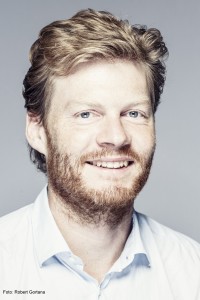Summer school looks at putting economies on a more sustainable footing
04/03/2019
 Sovereign money and regional currencies are frequently cited as possible solutions to put economies on a more sustainable footing.
Sovereign money and regional currencies are frequently cited as possible solutions to put economies on a more sustainable footing.
Gaining an understanding of concepts such as these and others within a truly international context brings an exciting dimension to the Vienna-based Alternative Economic and Monetary Systems (AEMS) programme, which challenges the norm and puts fresh ideas and perspectives under the radar.
AEMS continues to gain recognition internationally as a place for those wanting to make a difference across the globe, with an alternative approach to the current boom and boost pattern of economics.
In 2019, the summer school university programme celebrates its sixth year – and in that time it has attracted participants from around the world looking for a constructive opportunity to debate the current situation and propose new solutions.
Last year, 61 people from 34 different nations – aged from 20 to 56 years – took part in the two-and-a-half week-long summer school; the highest number of students since its launch.
This year, AEMS takes place in the Austrian capital between July 24 and August 9 and, with the programme and all social activities carried out entirely in English, it offers a great opportunity for students from the UK and Ireland to take part.
AEMS is run in association with Vienna’s BOKU University of Natural Resources and Life Sciences and the Economy for the Common Good.
Each year, the summer school attracts leading lights in the alternative economic movement to discuss these key topics.
Previous guest lecturers have included the initiator of the Economy for the Common Good Christian Felber, named in the Big Issue’s 2019 Top 100 Business Changemakers.
The OeAD-Housing Office – part of Austria’s national agency for international mobility and cooperation in education, science and research – operates AEMS under a not-for-profit arrangement. The course’s participation fee is used solely to cover its costs.
It includes all social and cultural activities, as well as accommodation in one of OeAD’s passive house student residences in Vienna.
The accommodation is also included as part of the fee for almost a week after the programme, enabling those taking part to explore the city at leisure.
Günther Jedliczka, CEO of the OeAD-Housing Office, said: “AEMS opens up discussion and debate around the alternatives for a new world order in economic thinking, through a mix of workshops, debates and social activities.
“At the heart of its content is the debate on how economic, political and monetary factors can be changed to be more sustainable, without overusing our natural resources.”
AEMS attracts a broad audience including undergraduate and post graduate students, as well as people with interests and careers in politics, philosophy, economics and finance.
It begins with a look at climate change from an environmental and economic perspective and specifically focuses on the many possible solutions for these global problems. Life-work balance, ethics and sustainability are also considered.
As well as AEMS, the OeAD-Housing Office also runs the Green Building Solutions course (GBS), which brings together the latest thinking in sustainable design and engineering. GBS takes place in 2019 from July 20 to August 11.
More details about AEMS and GBS can be found at www.summer-university.net
